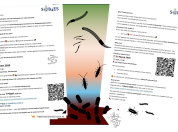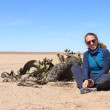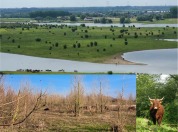Search
Filter by
Type
Tags
Dossiers
Themes
Departments
Active filters
1038 search results
Search results
-
Why do farmland birds thrive in intensive flower bulb cultivation? Spatial analysis of landscape structure and breeding bird densities
Are you a bird- and/or data-nerd? Or just interested in bird ecology, GIS, agriculture and possibly flower bulbs? We are looking for a motivated student who is interested in a combination of spatial ecology, farmland birds and landscape-scale biodiversity patterns. You will work on an exciting case study that dives into the paradox that farmland bird populations in flower bulb cultivation perform very well against all odds.
-
Medewerker Facilitair (Vacancy in Dutch)
Zoek jij een hele leuke startersfunctie in een internationale omgeving? Met een breed takenpakket, voldoende verantwoordelijkheid en opgewekte collega’s? Dan zijn wij op zoek naar jou! -
Investigating behaviour and badge size in House sparrows (International fieldwork internship/thesis)
I am looking for a motivated Masters or HBO student to take part in the upcoming field season in the United Kingdom. Fieldwork will take place between April and May 2026 for 1.5 months on Lundy Island. During this time, I will be collecting microbiome samples from House sparrows (Passer domesticus) and monitoring their breeding activity. The student will act as a field assistant while also developing their own behavioural project. -
Citizen assembly soil biodiversity
Would you like to help shape the future of our planet? Visit this unique one-day event on soil biodiversity, where people
come together to discuss, exchange ideas, and contribute directly to future policy.
-
Marina Ramos-Muñoz
Postdoc
-
Alex Figueiredo
Postdoc
-
Symposium Evidence-based Rewilding & Launch Rewilding Expertise Centre
What evidence shows that rewilding actually works? The symposium also marks the launch of the Rewilding Expertise Centre by NIOO researcher and special WUR professor Liesbeth Bakker on World Rewilding Day!
-
Dutch Ditch Days 2026
The 2026 edition of the IVN Dutch Ditch Days will take place between 5 and 7 June. During these days, IVN guides children in taking a closer look at the aquatic animals and plantlife in Dutch ditches. NIOO uses the observations of the children to study trends in water biodiversity and water quality.
-
Lecture 'Rewilding: opportunities for insects' on national Insect Day
On Saturday 7 February, NIOO researcher and rewilding professor Liesbeth Bakker will give the opening speech on the big national Insect Day. She will talk about rewilding and the chances for insects. -
PhD thesis defence Germán Pérez: Methane-oxidizing bacteria; “the gatekeepers of methane”
Germán Pérez will defend his PhD thesis, titled "Methane-oxidizing bacteria; “the gatekeepers of methane”: Insights into their niche differentiation in freshwater systems".
